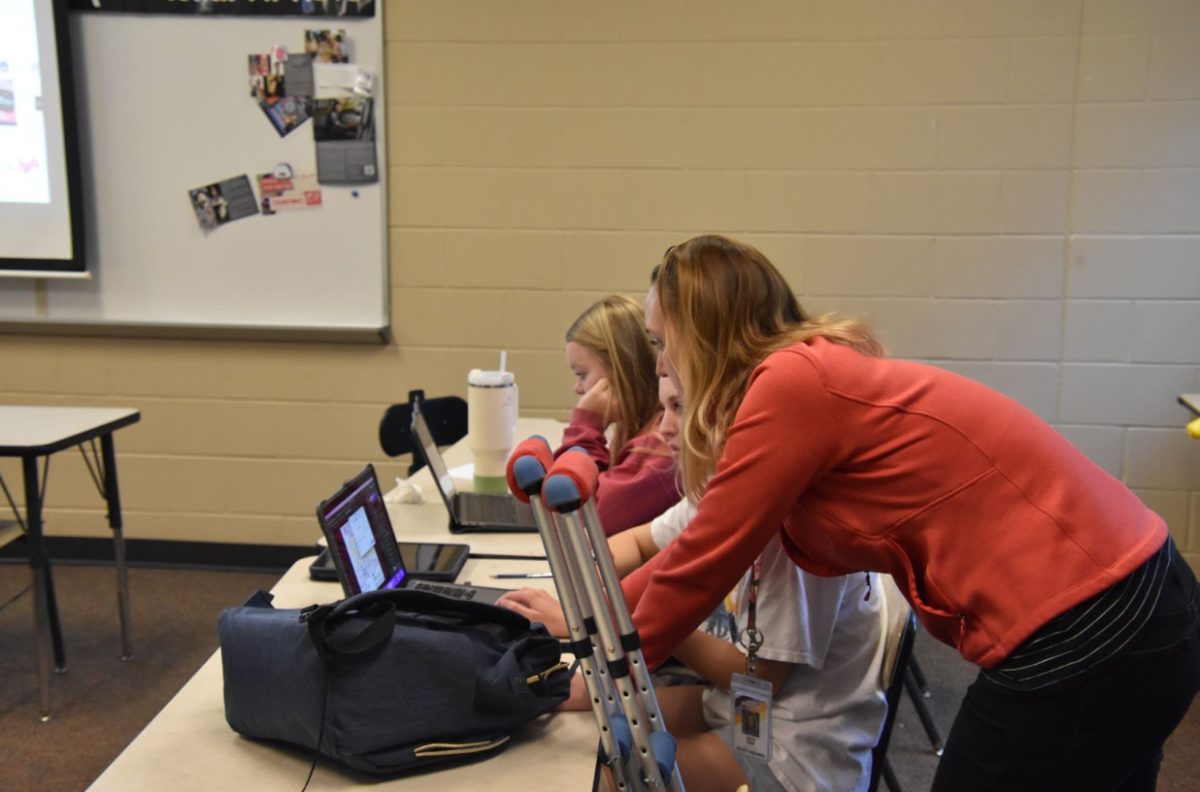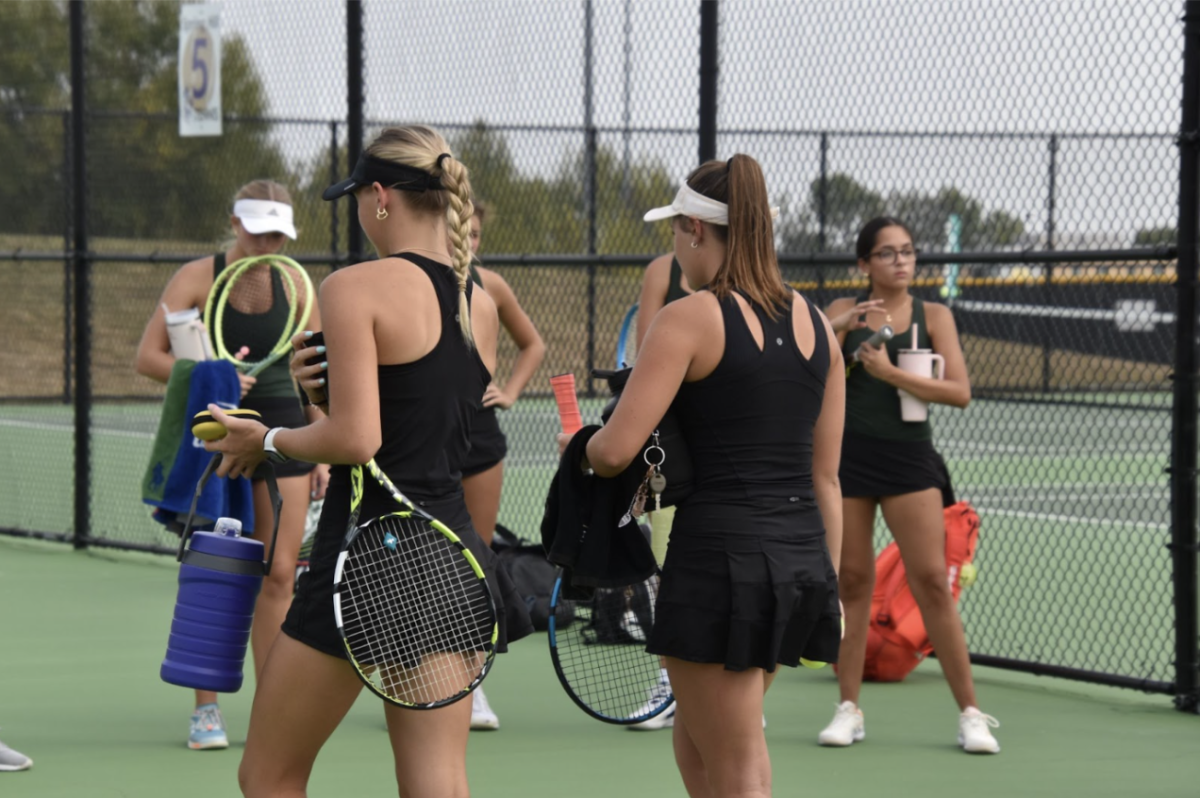As the school year comes to a close, the significance of consistency and keeping up with assignments tends to be overlooked. When missing assignments pile up and grades begin to drop, the temptation to slack, procrastinate, and put off assignments while hoping for the best is pervasive.
“I do think the amount of missing assignments, especially during the third quarter, is an issue and just goes back to students not using their class time wisely. In my case, I believe I give an adequate amount of time to finish work at school. I’ve noticed students tend to work on assignments from other classes or just waste their time on their phones instead of getting stuff done which easily leads to them falling behind,” Paige Husa, history teacher, said.

“They also have to realize that comes with consequences if they don’t use their time wisely, just like I as an adult have to realize that as well. I have taught myself how to give students grace while also holding them accountable at the same time.”
Addressing this issue requires several different approaches, including introducing or emphasizing project-based learning in classrooms. Kelley Colwell, history teacher, noted the efficacy of implementing these approaches into their own classroom as well as updating Skyward with zeros for those with missing assignments.
“Some kids are really motivated by their grade and some kids are intrinsically motivated because they want to check things off their internal ‘to-do’ list, but some kids aren’t motivated by that and just feel like nobody believes in them and they doubt their high school grades will matter in the long run. For those students, I try to have one-on-one conversations with them in an attempt to motivate them to tackle those assignments even if it means taking it one small step at a time.” said Colwell. “I think project-based learning is a great way to attempt to fix this problem because it gives more choice and freedom to students and makes them more willing to get things done, but it really just depends on the class. In math, busy work and repetition is good for understanding the curriculum while history projects could help them engage in that specific subject.”
Among the staff, there is the belief that the root cause of missing assignments and inconsistency are distractions and competing priorities. Students grapple with varying levels of motivation and pressures outside the classroom, leading to a decline in their overall academic performance.
“I think the amount of missing assignments a student ends up with really depends on their priorities. A lot of teachers give class time to get work done and if students use that time wisely, they shouldn’t have missing assignments. But I do notice that if they get one or two, it does start to spiral a little bit and they tend to feel that they can’t recover.” said Kerri Rodden, English teacher. “Depending on the class, I give daily reminders and keep the daily agenda updated especially for bigger projects in order to prevent anything from becoming missing. However, if I do notice a pattern I make sure to talk with that student individually and make a game plan to fix that.”
Nevertheless, the repercussions extend beyond academic performance. The overall experience of piling up missing assignments can breed anxiety and self-doubt as well as strained relationships with loved ones such as parents and friends.
“Once there is a pile up of missing assignments, it can be very disheartening. It doesn’t feel good to just see your grades drop and drop, which can have other negative consequences towards your life, especially your mental health.” said

Jace Nelson, 10. “If you struggle with anxiety, it can also be pretty difficult because it can do things like strain relationships with parents, and even friends. It can put this voice in your head that just tells you you’re a failure and it just doesn’t feel great.”
Several staff members have claimed that they put zeros in Skyward in an attempt to motivate students to get that grade up, but after further discussion with several students, it has proven to not be as effective as they might have initially believed. While their approach to the situation may temporarily motivate students, it fosters a culture of complacency rather than genuine engagement with the material.
“Personally, I feel like there should be less emphasis on just doing something just to have it done, and instead have a way of encouraging you to figure out a way to do it better for yourself,” said Nelson. Victor Rios, 12, also had a similar opinion on the situation.
“I feel like once I get one missing assignment, it just adds up and gives me more to worry about in the future,” said Rios. “You just get this mentality of ‘I have to get this done,’ but you also have more work coming in at the same time and you just have to work around that while also maintaining your own personal life.”
Overall, the importance of consistency in student performance remains very prominent, especially towards the end of the year. Through more collaborative and engaging material, educators can make a great attempt at mitigating these challenges and cultivating a culture of encouragement and welcoming learning environments. As the educational landscape continues to evolve, prioritizing consistency while also maintaining the mental health of students remains imperative in the process of nurturing academic growth and the overall well being of the student body.
















